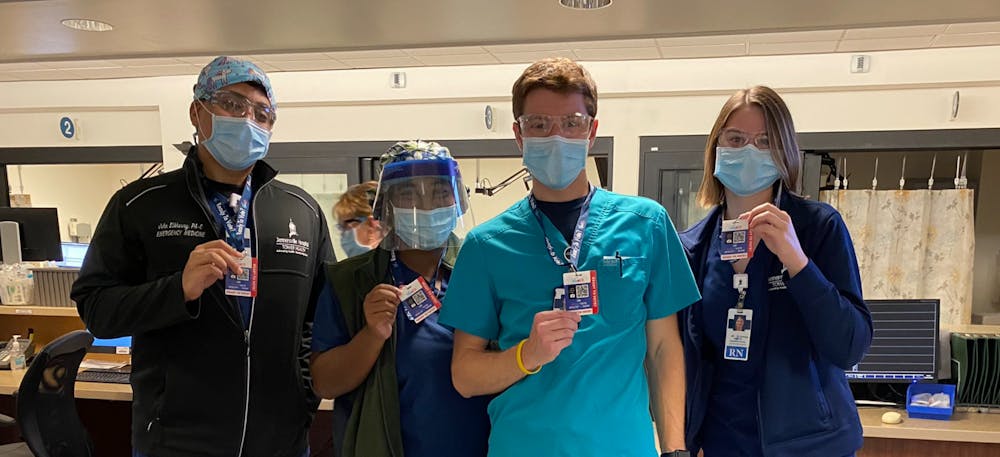By the end of the two-week competition, UNC medical students had registered 315 voters, while Duke students had registered 235.
The competition was part of a larger effort to get medical students across the country to register voters.
Dr. Alister Martin, an emergency physician in Boston and the executive director of VotER, said marginalized people in health care systems are often the least likely to be registered to vote. He said that, through his study of public policy and personal experiences as a doctor in the emergency room, he found that many problems he encountered with his patients were social emergencies, rather than medical in nature.
“They've come in because upstream, our political system and our health care system is filled with, for example, patients who come in with homelessness,” Martin said. “The only reason they're in the ER is that they need shelter.”
VotER has provided more than 26,000 doctors with voter registration badges on lanyards, which patients can scan for instructions on how to register. The organization has helped register more than 14,000 voters nationwide.
VotER also provides hospitals with posters and flyers, as well as links and text codes to share during tele-health visits.
Although the VotER program encourages patients to vote, the organization also focuses on increasing voting and civic engagement among doctors.
“The bottom line is, we have to clean up our own house first,” Martin said. “And hospitals and community centers around the country are doing that by helping their own providers vote.”
Mahsa Taskindoust, a medical student and VotER team captain at Duke, said she got involved with the UNC-Duke competition after seeing a post on Instagram and ordering lanyards for herself and some friends. She eventually volunteered to serve as Duke’s team captain.
“I think people really were motivated not by competition but this idea that, 'Oh wow, a lot of other medical students are doing something other than research or clinical care, something that's really benefiting like our community and patients,'” Taskindoust said.
Although the competition only lasted two weeks, doctors continued to order VotER lanyards and register patients.
Dr. Kathleen Barnhouse, a practicing doctor and associate professor of family medicine at UNC, said most doctors and medical students found out about the program through their colleagues.
To get the day's news and headlines in your inbox each morning, sign up for our email newsletters.
When two of Barnhouse’s patients asked whether it would be safe for them to vote in person, she recommended voting by mail and offered to help them print their absentee ballot request forms. As she printed the forms, a medical student encouraged her to participate in the VotER program. She ordered lanyards and spread the word to coworkers in her department.
Through mostly social media and word of mouth, UNC and Duke doctors and students vastly increased the number of participants in the program. Both schools have helped over 1000 people register to vote or vote by mail.
"I think VotER did an elegant job of making this truly nonpartisan and making this really about just empowering people, and letting them know what their options were for voting whether that was voting by mail or in person," Taskindoust said.
@Jacob_M_Andrews
@DTHCityState | citydailytarheel.com



